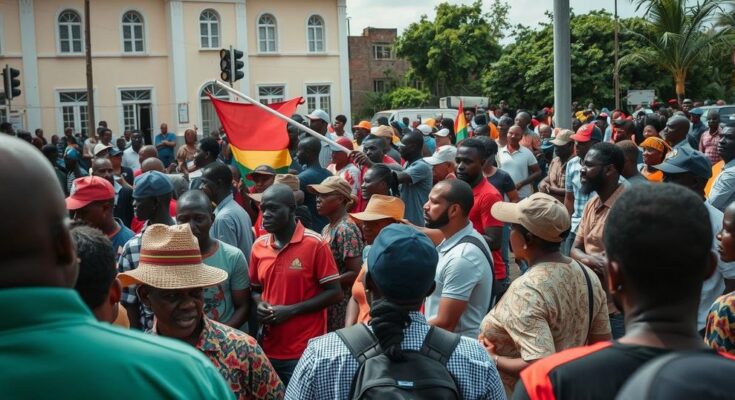Since Monday, Mozambique has witnessed at least 21 fatalities due to political unrest following disputed election results. Opposition leader Vanancio Mondlane, contesting the legitimacy of the elections, has threatened to proclaim himself president on January 15. Protests have led to violent confrontations with police, resulting in numerous arrests and casualties, drawing international attention to the need for accountability and a peaceful resolution.
At least 21 individuals have tragically lost their lives since Monday due to escalating political turmoil in Mozambique. This unrest follows the controversial affirmation of election results by the Mozambique Constitutional Council, recognizing Daniel Chapo of the ruling Frelimo Party as the victor of the October 9 elections, which opposition leader Vanancio Mondlane has vehemently contested. Protests ignited by Mondlane’s supporters have led to violent clashes with police resulting in deaths and over 70 arrests.
Mondlane, who garnered 24% of the votes compared to Chapo’s declared 65.2%, has alleged electoral fraud and plans to assert his presidency on January 15, the same day Chapo is scheduled for official swearing-in. Despite seeking refuge in an undisclosed location, Mondlane vowed to reject violence, stating, “We are with the people. We do not advocate any form of violence.” Reports suggest that since the election result announcement, over 100 fatalities have occurred amidst protests, with human rights organizations attributing numerous deaths to the actions of security forces.
U.S. officials acknowledged the legitimacy of the concerns raised by Mondlane and his supporters regarding election irregularities and emphasized the need for accountability for human rights violations. The State Department highlighted discrepancies in the electoral process and called for a cessation of violence while urging collaborative efforts among stakeholders to restore peace in the country. Current President Filipe Nyusi is concluding his second term, amidst this growing crisis.
Mozambique has been grappling with political instability primarily due to the longstanding dominance of the Frelimo Party, which has been in power for 49 years. The tension escalated significantly following the October 9 elections that many have deemed questionable. Political opposition, spearheaded by Vanancio Mondlane, has challenged the election outcomes, which have resulted in widespread protests and violent confrontations. International observers and rights groups have raised red flags about the electoral process and the subsequent handling of protests by security forces, indicating a dire need for reassessment and potential reform in Mozambique’s political landscape.
In summary, the current political unrest in Mozambique reflects deep-seated issues relating to electoral integrity and governance. The deaths of 21 individuals in recent clashes highlight the urgent need for dialogue and accountability among political factions. As Mondlane plans to declare himself president amidst widespread allegations of electoral fraud, the international community continues to advocate for peaceful resolutions and protection of human rights. The future of Mozambique’s democracy hangs in balance as its citizens strive for legitimacy in their electoral processes and transparent governance.
Original Source: www.upi.com




